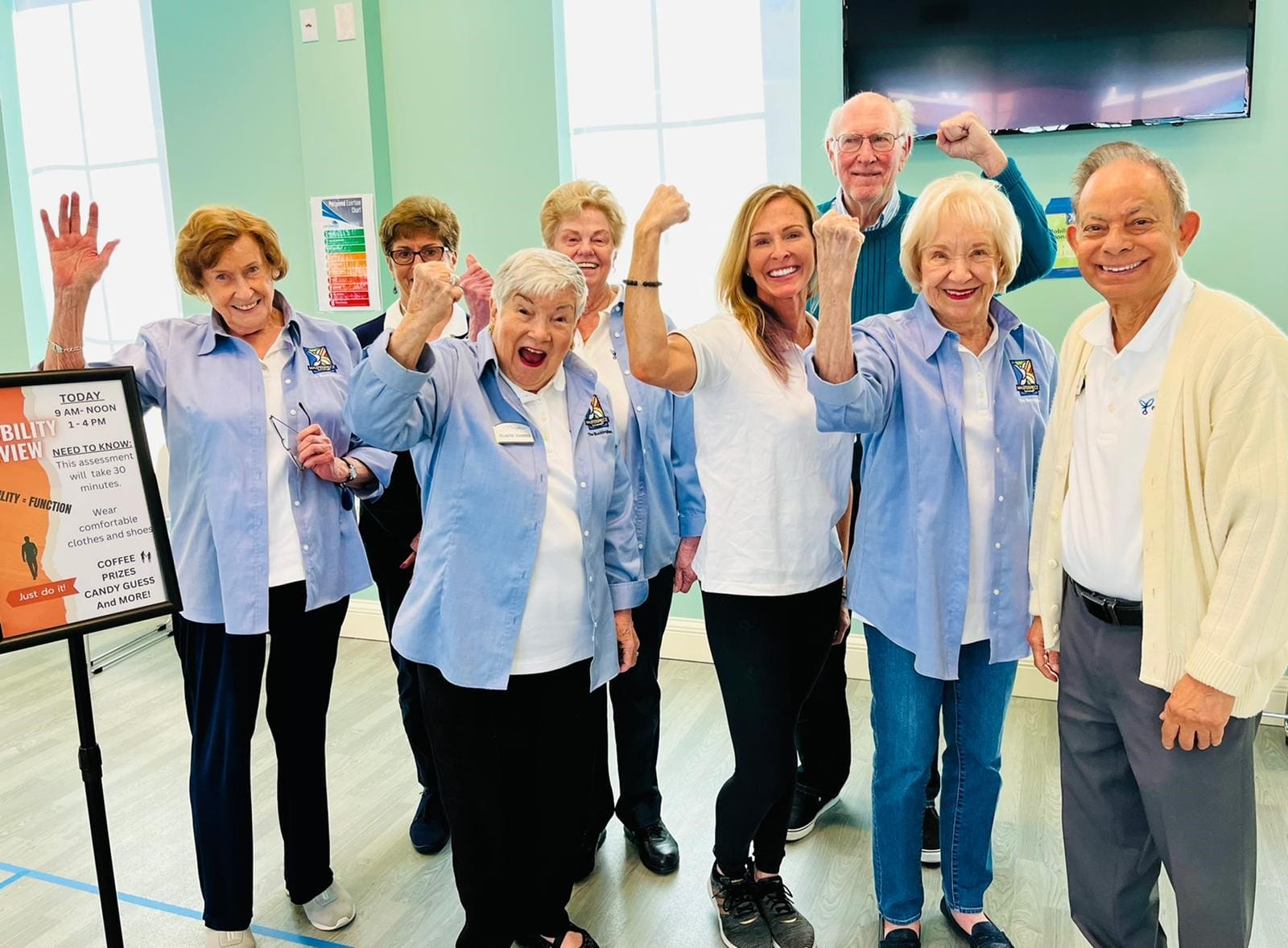Staying active is crucial to maintaining your health and wellbeing, but it may be even more important in aging and senior adults. Being healthy feels good both physically and mentally. When your body feels strong, your mind is clear and everyday activities are not so strenuous.
Research shows that 75% of all seniors lack the right amount of exercise, which can compound other medical issues. According to the Centers for Disease Control (CDC), the loss of strength and stamina attributed to aging is in part caused by reduced physical activity, and inactivity increases with age. By age 75, about one in three men and one in two women engage in no physical activity.
How Can Physical Fitness Help as We Age?
Regular exercise and movement can help prevent more than 33 health conditions, including heart disease, stroke, Alzheimer’s disease, cognitive decline, obesity, cancer, hypertension, and more. The number one thing seniors want to improve is their balance, so prioritizing mobility, flexibility, and strength with moderate workouts as you get older can help prevent injury by reducing falls or fractures.
Another thing to keep in mind is your bones. Bone density begins declining as early as 30, but with regular exercise you strengthen your muscles and protect your bones to help maintain independence in everyday activities. Low-impact exercise, such as yoga, tai chi and stretching, can help build up bone strength with a low risk of injury and help support healthy bones.
The most important thing is to create a fitness plan that’s right for each senior. At The Buckingham, we have the ASPYRE program, which focuses on all components of successful aging, including physical fitness, spiritual, intellectual and emotional health. With this in place, opportunities for wellness become easily tailored to residents’ unique, personal preferences. We help seniors create a regular exercise routine that they can realistically stick to and enjoy. I encourage seniors to stick to 150-minutes of movement per week. That can be walking, balance class, aerobics and more.
How Does Nutrition Impact Seniors:
A healthy “eating plan” includes a balance of carbs, lean protein, and “good” fats like olive oil. But one of those —protein—is especially important for older adults. Close to half of older adults get less than the amount of vital nutrients, especially protein, suggested by the National Academy of Medicine. Although you might consume the same amount of protein you did in your younger years, your body might not be able to use it as well.
Research supports increasing the recommended intake of protein for older adults by up to 50 percent because of age related factors such as: inflammation from infections and other medical problems, which hikes protein needs, comorbidities, injuries, chronic diseases, or surgery in older age. Plus, older adults are more likely to have chronic systemic inflammation, which raises the body’s protein requirements. That means people over the age of 65 should have about 0.50 grams of protein per pound of body weight daily, or about 75 grams for a 150-pound person.
Also, the amount of fiber per day that seniors eat needs to be increased, with men eating 30 grams per day and women having 20 grams. The best way to keep up your fiber intake is the three Bs: beans, berries and broccoli.
Another important component to wellbeing, that is often overlooked, is water intake. Water is necessary for nearly every bodily function, from lubricating joints to regulating body temperature and pumping blood to the muscles. Not getting enough of it can have serious health consequences. In addition, as you get older, your sense of thirst diminishes. So even when your body needs to be replenished with water, you might not realize it. Because of that, many older adults don’t drink enough liquids. By the time they are thirsty, that’s already an indication of early dehydration.
Dehydration can cause several ailments, including muscle pain, fatigue, urinary tract infection (UTI) and heat exhaustion. Generally, you should take one-third of your body weight and drink that number of ounces in fluids daily.
Getting older doesn’t have to be scary. Prioritizing your health and wellness helps your muscles grow stronger so you can keep doing your day-to-day activities without becoming dependent on others.
Jena Hoofnagle is a fitness specialist at The Buckingham Senior Living.







